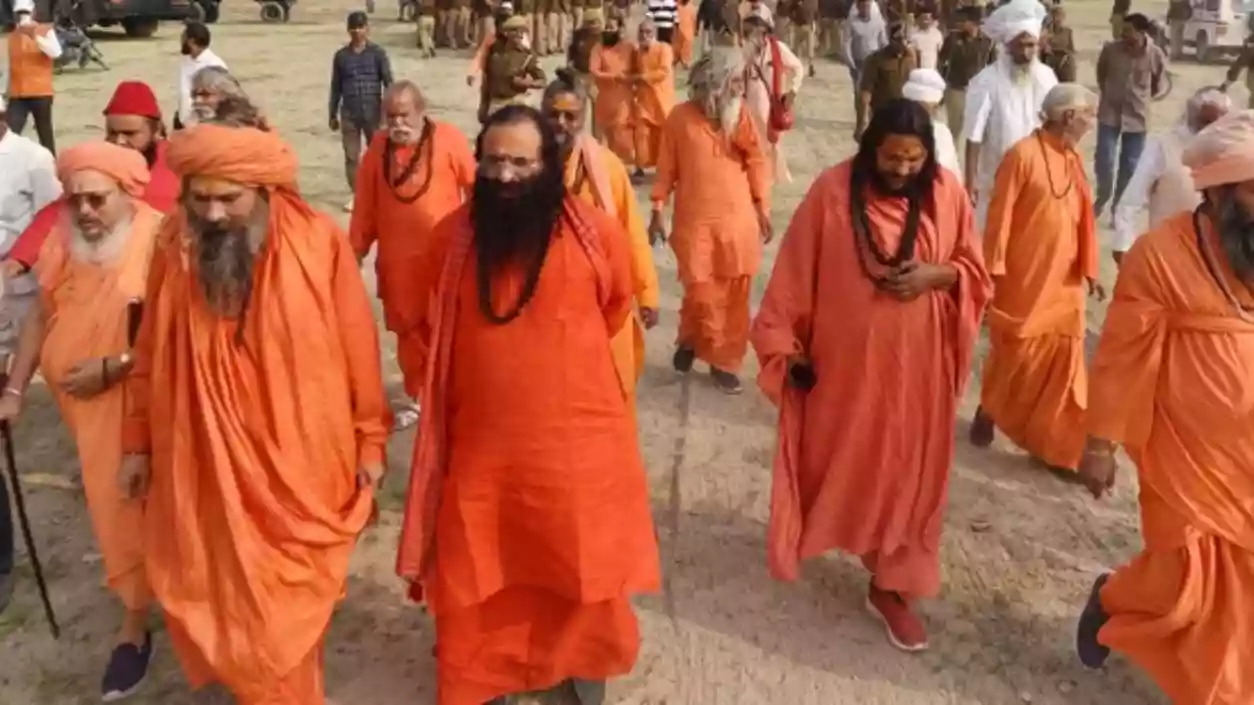Babul Supriyo and Justice Ganguly's heated exchange on 2nd Hooghly bridge
.gif)
.gif)

Mahant Ravindra Puri, the president of Akhil Bhartiya Akhada Parishad (ABAP), has proposed a ban on non-Hindus from setting up tea, juice, and flower stalls during the Mahakumbh Mela in Prayagraj, Uttar Pradesh, scheduled for January 13, 2025. Puri’s proposal stems from concerns regarding the sanctity, hygiene, and security of the event, which is one of the largest religious gatherings in the world.
In his statement, Puri stated that allowing non-Hindu vendors to operate these stalls could lead to unsanitary behavior, such as spitting and urinating, which he believes would disrupt the peaceful and divine nature of the Mahakumbh. He emphasized that the event should remain "beautiful, clean, grand, divine, and peaceful." Puri argued that the presence of non-Hindu vendors could provoke conflict, particularly with the Naga saints, who are integral to the Mahakumbh’s spiritual practices and are responsible for maintaining order during the event.
Puri’s concerns are based on maintaining the sanctity of the event, which attracts millions of pilgrims and devotees from across the globe. The Mahakumbh, held every 12 years, is a key cultural and religious gathering for Hindus, where participants take part in the sacred ritual of bathing in the Ganges to cleanse their sins. Puri’s remarks come at a time when preparations for the 2025 Mela are intensifying, with a focus on enhancing Prayagraj’s infrastructure, ensuring cleanliness, and managing the large number of attendees.
The Uttar Pradesh government has been actively working on several infrastructure projects, including road expansions, waste management systems, and the construction of modern amenities to accommodate the expected influx of millions of visitors. Authorities are also putting in place robust security measures, including surveillance and crowd control protocols, to ensure a safe environment for attendees.
Puri’s call has faced criticism, particularly from the All India Muslim Jamaat, which has expressed concerns that excluding non-Hindu vendors would create divisions in society. The Jamaat argues that the Kumbh Mela has always been a symbol of unity in diversity, with people from various backgrounds, religions, and sects coming together without any discrimination. They view the event as a secular gathering that promotes harmony among all faiths and oppose any efforts to restrict participation based on religion.
Prime Minister Narendra Modi, in his last "Mann Ki Baat" episode of 2024, emphasized the importance of unity and brotherhood, particularly in relation to the Kumbh Mela. He praised the event as an example of India’s diversity and inclusivity, where people of all religions and backgrounds come together to participate in the spiritual gathering. Modi’s remarks underscored the inclusive spirit of the Mahakumbh, a gathering where no individual is considered superior or inferior, and where unity in diversity is celebrated.
As the Mahakumbh approaches, the government of Uttar Pradesh continues its efforts to ensure that the event runs smoothly, providing modern facilities and ensuring a clean environment for the millions of pilgrims expected to attend. The controversy surrounding Puri’s comments adds complexity to the ongoing preparations, as the authorities must balance concerns about religious sensitivities and the need for inclusivity at a global event.
In conclusion, the debate surrounding Mahant Ravindra Puri’s proposal reflects larger issues of tradition, inclusivity, and the evolving nature of religious gatherings in India. With the Mahakumbh Mela drawing millions of devotees from different backgrounds, the event’s organization continues to focus on maintaining its spiritual significance while ensuring safety, cleanliness, and a peaceful environment for all participants.